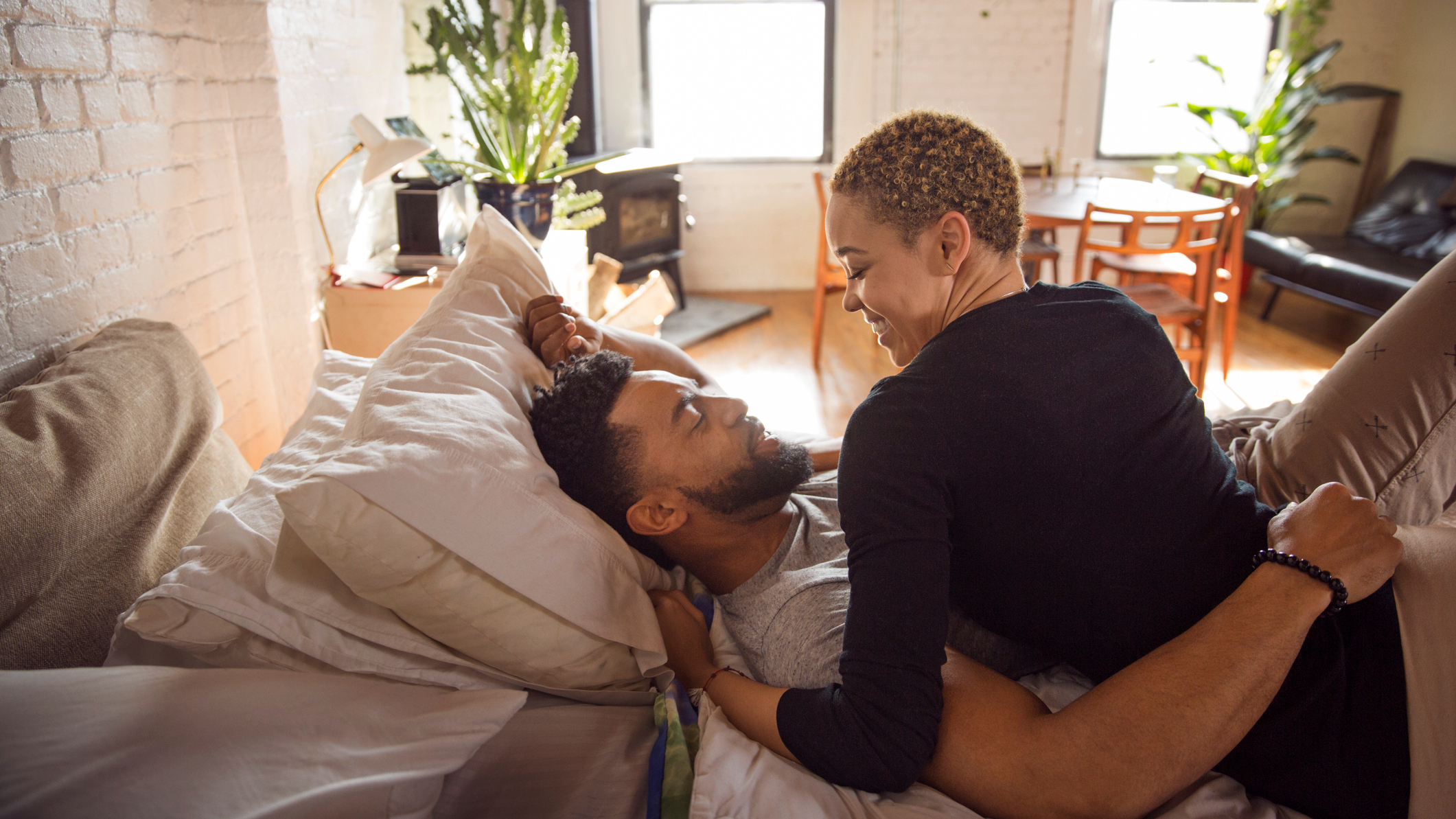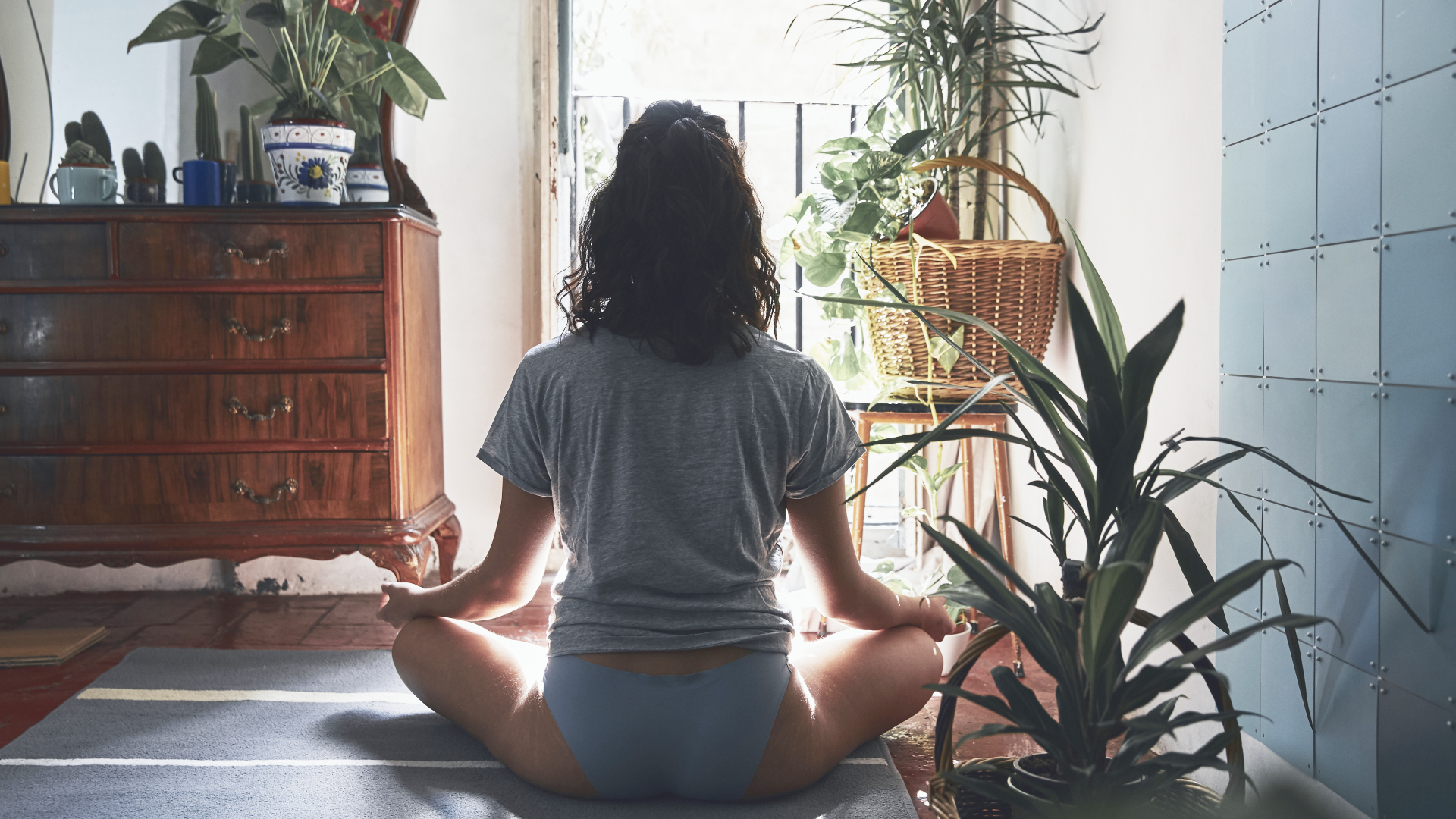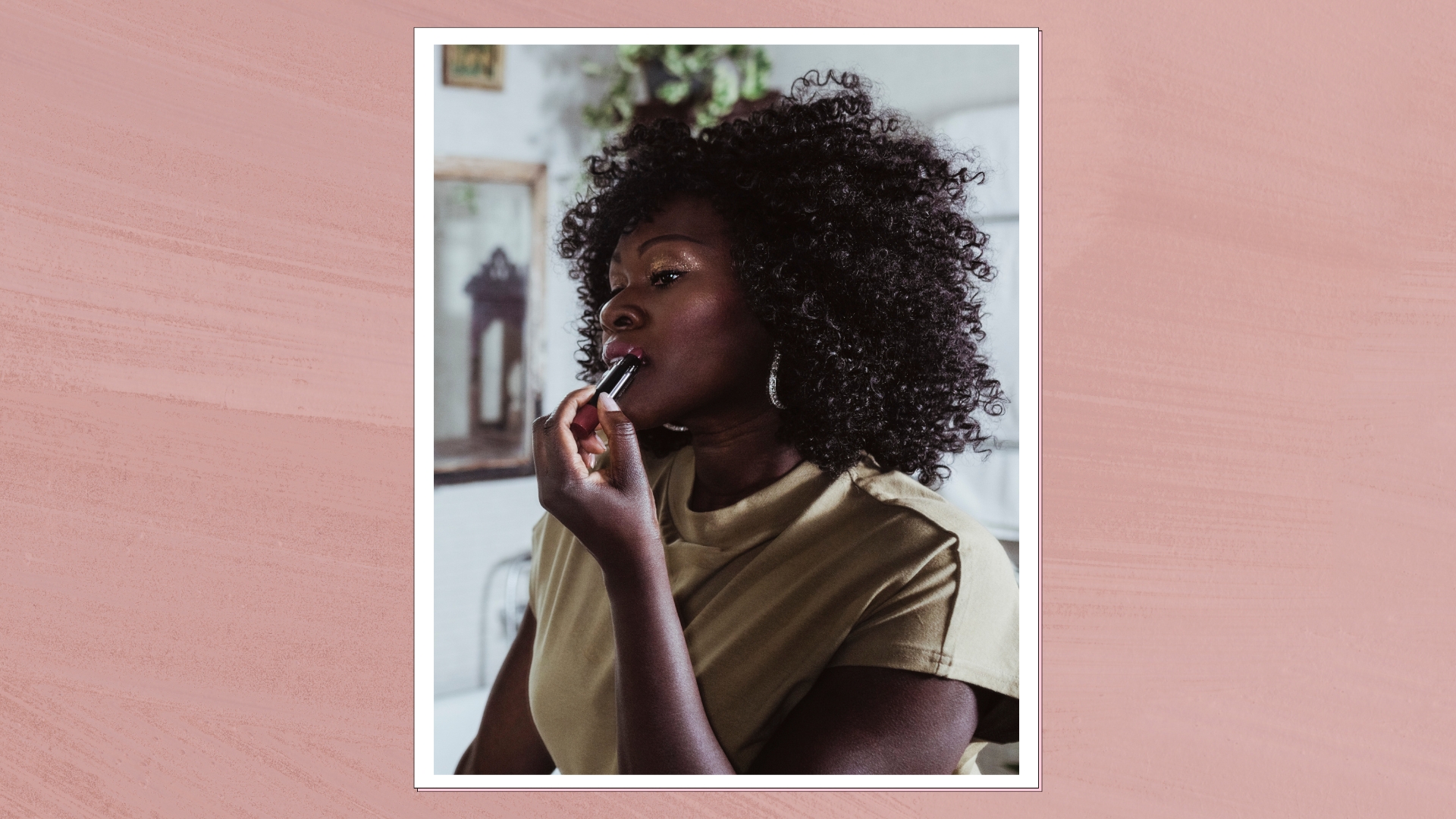Seasonal affective disorder and sex—is the winter weather sabotaging your orgasm?
If you're worried about how seasonal affective disorder and sex drive are linked, we're here to help


It may seem like an unlikely pairing, but seasonal affecting disorder and sex are very much linked—and not in a good way. While cold temperatures and early sunsets might make some want to cozy up underneath the covers with their partner, for others the winter weather can have a negative impact on their libido.
Indeed, seasonal affective disorder symptoms can harm everything from sex drive to body confidence in bed. What's more, this weather-induced low mood, commonly abbreviated as SAD, is more likely to happen to women. The mental health condition—which affects 10 million Americans, along with one in three people in the UK—impacts four times as many females as men. So, if your orgasm has faded during December, then this could perhaps be the reason why. As such, we've called on the experts to help explain exactly how SAD could be sabotaging intimacy and how to reignite your sex life during these chilly months and beyond.
Seasonal affective disorder and sex explained
"SAD is a mood disorder associated with changes in the season that can cause depressive episodes, particularly over winter months," says Dr Laura Vowels, a sex therapist and principal researcher at digital sex therapy app Blueheart. Symptoms include, according to the NHS, feeling tired in winter and finding it difficult to concentrate, as well as low mood, loss of pleasure in normal activities, and irritability.
However, one of SAD's lesser-known impacts is on sexual activity. "While the effects vary for each person, one of its most common symptoms is exhaustion, which can affect the sex drives of those suffering from the disorder," explains Dr Vowels. "During this period, sufferers may also experience lower levels of body confidence and find themselves struggling to climax with their sexual partners, both of which can create barriers to intimacy during sex."
As well as its effect on sex itself, it can also cause issues if you're in a relationship. "Because it tends to arrive slowly, it can look as if somebody is no longer interested in their partner," notes Alex Mellor-Brook, a relationship expert and founder of dating platform Select Personal Introductions. "The truth is that they’re slipping into a form of depression that they may not recognize is affecting them." He adds that it can cause people to feel like hibernating and lead them to cancel plans—including date nights. As such, even the mildest of cases of seasonal affective disorder—which often go diagnosed—can be detrimental to people's love lives.
Is it more difficult to orgasm in winter?

Not exactly, but the colder months can have a negative impact on your sex life as a whole. "For those who suffer from SAD, depression, and fatigue are two common symptoms, and studies have shown that both can significantly reduce your desire to have sex," explains Dr Vowels. Which, in turn, can impact your ability to achieve orgasm.
Reaching climax regularly during intercourse is something that's more difficult for women to achieve anyway—with a study from Medical News Today showing that just a quarter are able to do so on a consistent basis. And, when considering how to have an orgasm as a woman, research from the Archives of Sexual Behavior has found that oral sex is necessary for many women to climax. If you don't feel aroused, then the vagina doesn't lubricate and intercourse can feel painful. However, if SAD is affecting your sex drive, then it may make it more difficult to get in the mood—even with kissing and foreplay, such as female masturbation.
Sign up for the woman&home newsletter
Sign up to our free daily email for the latest royal and entertainment news, interesting opinion, expert advice on styling and beauty trends, and no-nonsense guides to the health and wellness questions you want answered.
As such, the condition can impact sexual satisfaction within couples. "Where one or both partners have SAD, there may be sexual desire discrepancy—meaning when one person has a higher sexual desire than the other partner," explains Dr Vowels. "Couples may go through periods where one person is less interested in sex, which can result in difficulties in the relationship." Additionally, she adds that those taking medication, like antidepressants, to treat their SAD, may also find it impacts libido.
How to stop SAD from sabotaging your sex life

While winter may bring its challenges in the bedroom, there are ways to maintain a healthy sex life during the colder months and boost your libido with some simple lifestyle changes. Our experts reveal their advice for reigniting your spark if seasonal affective disorder has put a dampener on your sex life.
Most importantly, give yourself a break
The key thing is to practice self-kindness. "Remember to be gentle with yourself—give yourself time to adjust to the colder seasons, and the subsequent changes in your sex drive," suggests Dr Vowels. "If you have a partner, try to be open with them about your SAD and how it affects your sexual desire. This will not only help them understand that your lack of desire is not linked to them, but it also allows them to support you through it—which can help minimize its impact on your relationship."
Try the sensate focus technique
You could also try the sensate focus technique to help reignite your sex life. "The method incorporates the element of touch into a physical exploration of yourself and your partner," explains Dr Vowels. "Touching your partner’s body—starting with avoiding genitalia—with a focus on sensations such as texture, pressure, and temperature can reduce sexual anxiety, and help you both achieve more pleasurable sexual experiences with each other." You could also try experimenting with sex toys (take a look at our guides on the best vibrators and best sex toys for some inspiration) if intercourse is a no-go, but you and your partner still want a helping hand with pleasuring each other.
The sensate focus technique ensures there’s no pressure to climax or to even have intercourse, but it can help pique your interest in sex again. Similarly, Mellor-Brook adds, "Intimacy and sex are two different, but linked, things. While sex may take a back seat for a while, intimacy can be maintained through flirting, physical touch, or just sharing breakfast in bed."
Tackle SAD symptoms

From pulling on a pair of the best walking shoes and getting more natural light throughout the day, to spritzing uplifting scents, there are remedies that will help overcome seasonal sadness. "Using a sunlight lamp or going away on a winter holiday to a sunnier place, receiving cognitive behavioral therapy to redirect negative thinking, eating nourishing foods, and gentle exercise—like taking up yoga for beginners or Tai Chi—can all help improve your mood if suffering from SAD symptoms," Mellor-Brook advises. Ramping up self-care during the winter months can likewise be really helpful for overcoming SAD, and that also includes getting enough shut-eye (check out these best sleep aids and our guide on how to sleep better for some more ideas).
Mellor-Brook points out that the positive thing about SAD symptoms is that they do generally pass with the change in seasons. "Having a plan for the bad times can help everybody get through until the good days come again," he recommends. "After a couple of years, most sufferers know what they need to do, and when they need to do it."
Consider seeking professional help
It could also be worth seeking the support of a professional. "There are many treatment options, whether it’s sex therapy sessions—which can be done online or more affordably via apps—or referrals to a sex therapist through your GP," notes Dr Vowels. Again, it's important to be honest and open with your partner and not to suffer in silence—there is help out there if you need it.
Try and see the silver lining of SAD
Above all, Mellor-Brook suggests reframing SAD's impact on sex as a positive thing. "View it as a chance to deepen your relationship," he explains. "It is an opportunity to explore areas of communication and affection that might otherwise go unrecognized." Now, that's really feel-good stuff.
w&h thanks Dr Laura Vowels, a sex therapist and principal researcher at digital sex therapy app Blueheart, and Alex Mellor-Brook, a relationship expert and founder of dating platform Select Personal Introductions, for their time and expertise.

Lauren is a freelance writer and editor with a decade of print and digital journalism experience. While she specialises in covering health and wellness topics - ranging from nutrition and fitness, to women’s health conditions and mental wellbeing - she has written across a diverse range of lifestyle topics, including fashion, beauty, interiors and travel.
In addition to writing for Woman & Home and sister title Homes & Gardens, Lauren's work has also been published by Women’s Health, The Times, Daily Telegraph, Elle, Cosmopolitan, The Guardian, Marie Claire, Body + Soul, Stylist, Glamour, Grazia, Red, Dazed Digital, Yahoo Life, The Sun’s Fabulous, Get The Gloss and Hello! among others.
-
 Lip contouring sounds a bit much, but this modern makeup technique is the 'soft' way to cheat a fuller pout
Lip contouring sounds a bit much, but this modern makeup technique is the 'soft' way to cheat a fuller poutThink about how you use your favourite bronzer, then apply the same principle to your lips - easy!
By Naomi Jamieson
-
 Kate Middleton declares baker boy hats back for 2025 in new Love, Actually-esque outfit
Kate Middleton declares baker boy hats back for 2025 in new Love, Actually-esque outfitThe Princess of Wales’s signature style is all about timelessness but that doesn’t mean that she never gets on board with trends.
By Emma Shacklock